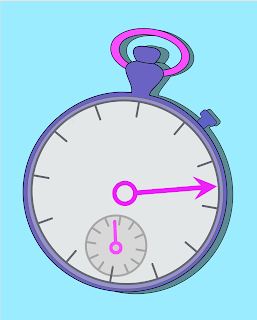If you want to dispel myths, then you shouldn’t state some more. At TikTok on February 13, 2024 there is a two-and-a-half minute teaching video by Trophy Kiprono (a coach from Nairobi, Kenya) titled 5 things they lied to you about public speaking. Her text claims:
“According to the National Institute of Mental Health, it is estimated that close to 73% of the world’s population has a fear of public speaking. Here’s the good news in that statistic. If you have fears around public speaking, you are in good, large company.”
But 73% is baseless nonsense from Statistic Brain, which I discussed on August 14, 2020 in a blog post titled Toastmaster magazine is spreading nonsense from John Bowe about how common the fear of public speaking is.
Her video mostly contains reasonable advice. A transcript with punctuation and capitalization added is:
“Let’s talk about some common public speaking myths that we need to dispel now. Because of the fear that surrounds public speaking there’s a lot of myths surrounding it.
The first myth is that great speakers are born that way. It’s a myth that great speakers are born with the ability to connect confidently and easily with a room full of people. The truth is anyone who aspires and desires and decides to improve their public speaking skills can do so. It’s a learnable skill, it’s like riding a bicycle which can be achieved through training, commitment, determination, and most importantly practicing.
The second myth surrounding public speaking is that experienced speakers don’t feel nervous. As you develop your public speaking skills, your pre-presentation anxiety lessens. The truth is your nerves will never go away completely, if you’re about to give a presentation you genuinely care about. Experienced speakers simply learn how to control, manage, and even harness their nerves to help them rather than hinder them. As Mark Twain once said, ‘There are two types of speakers – those that are nervous and those that are liars.’
The third common myth out there is that only extroverts make good public speakers. No, that’s not a fact. Your personality doesn’t matter. It doesn’t matter if you’re an introvert, an extrovert, an ambivert, or any other type out there. All you need is something important to say that will make a difference to others. A belief that what you have to say needs to be heard. A passion for what you believe in, and finally a conviction to express your passion and share your message.
The fourth myth out there is that you have to be perfect. Anxiety increases substantially when you strive for perfection. The greatest presenters know that, so they don’t try to go for an Oscar winning performance. Instead they know that their job is simply to be the best of who they are, with the sole intention of making a difference to their audience rather than making themselves look like ‘superstars.’
The [fifth] final myth is that you need to memorize your speech. Your audience don’t want to hear a sleek polished presenter who has memorized everything. It’s a myth that’s ‘theatre.’ Your audience want to hear someone speak, someone who knows what they’re talking about, someone who cares about what they’re saying, someone who makes their audience care too. You don’t need to memorize your speech. This will do both you and your audience more harm than good.
I hope these tips help.”
But under the second myth she includes a bogus Mark Twin quote. On May 12, 2020 I blogged about Did Mark Twain really say there were just nervous speakers or liars?
The image was adapted from this one at Openclipart.

No comments:
Post a Comment